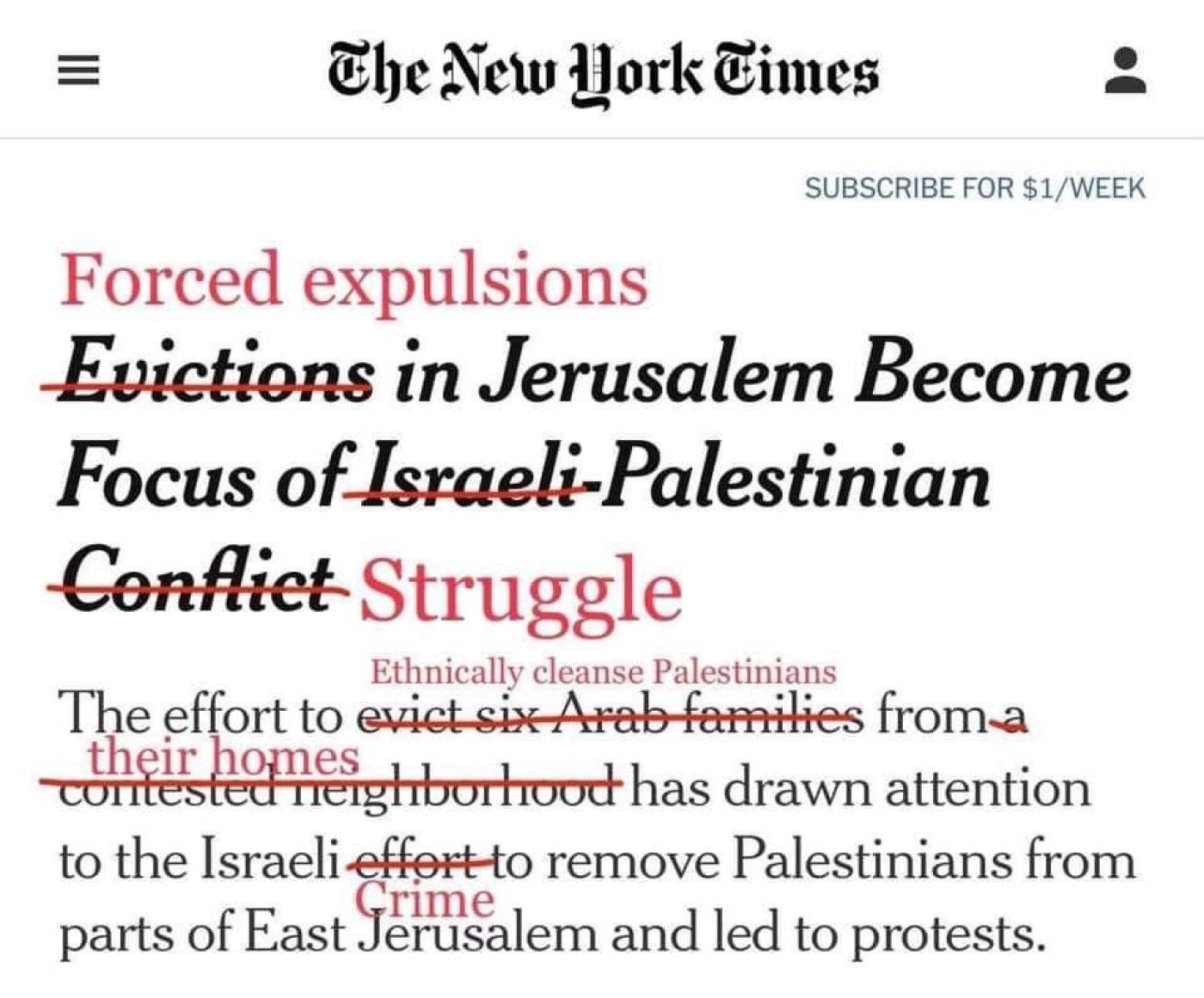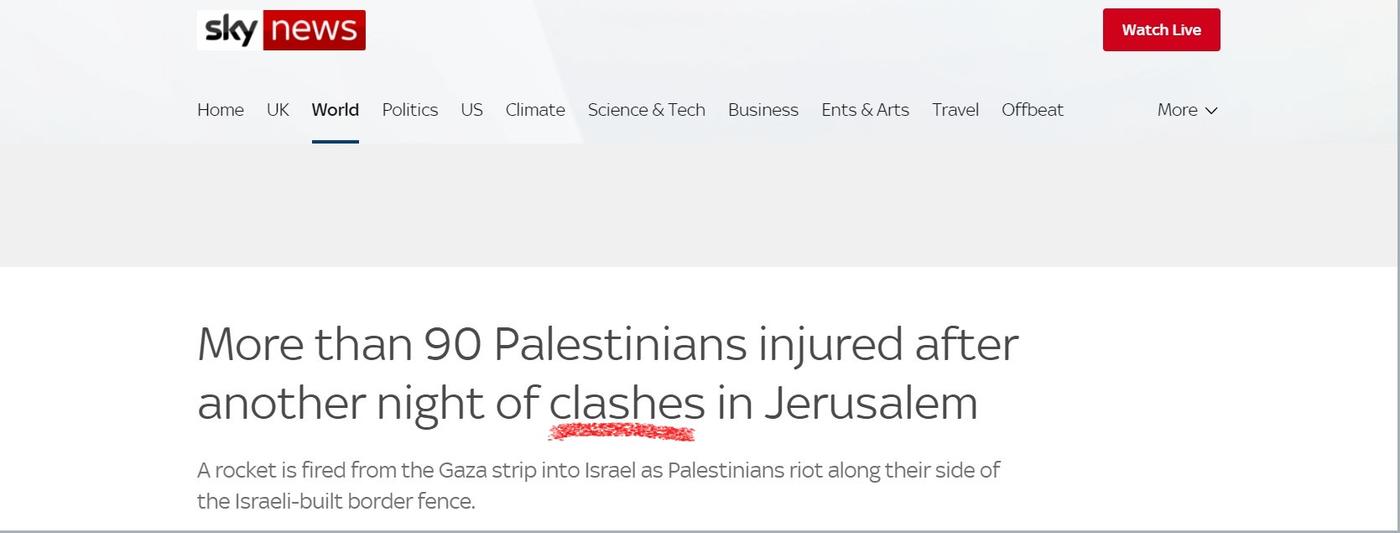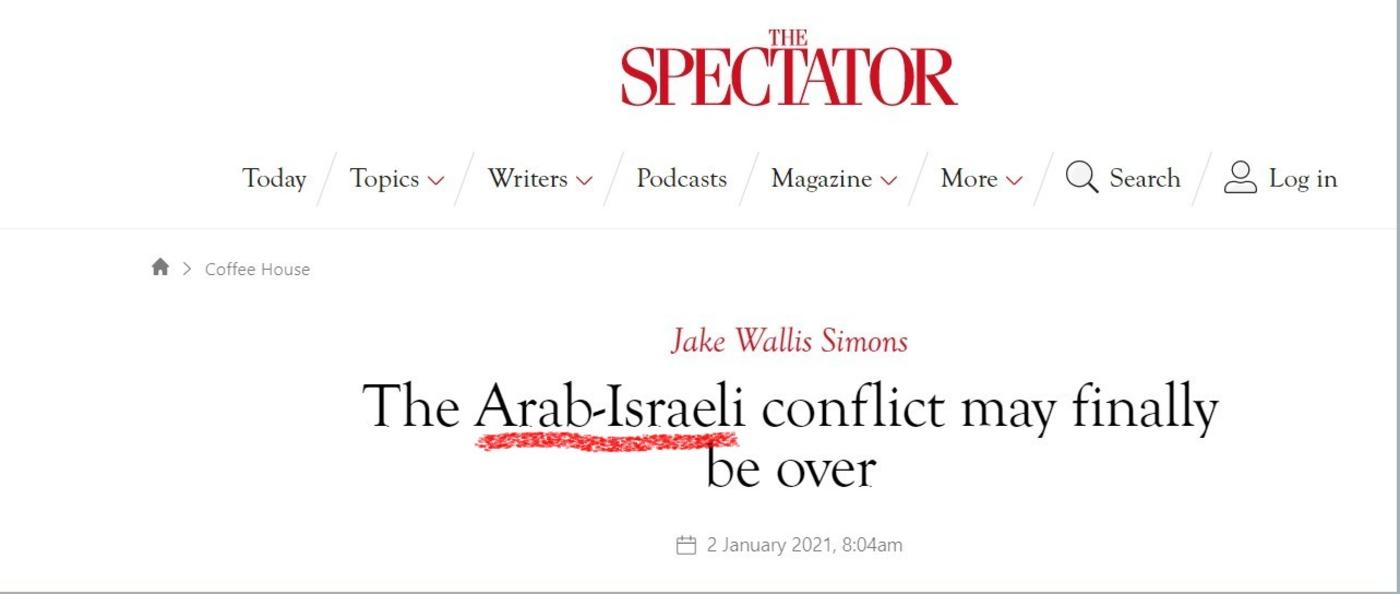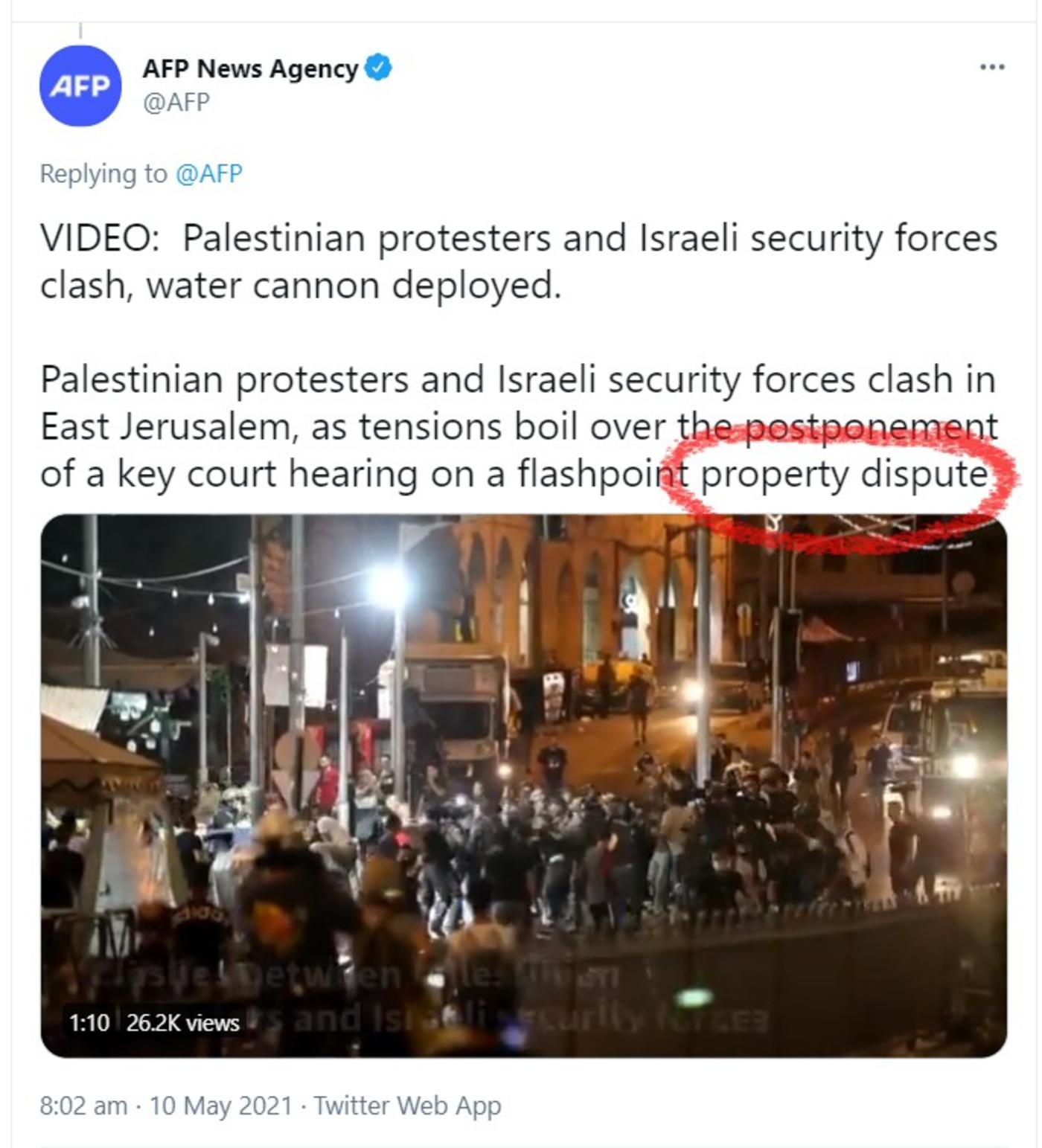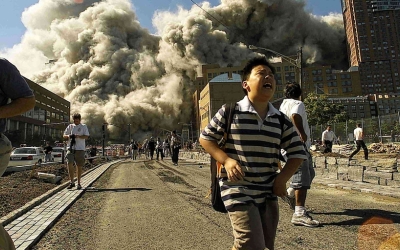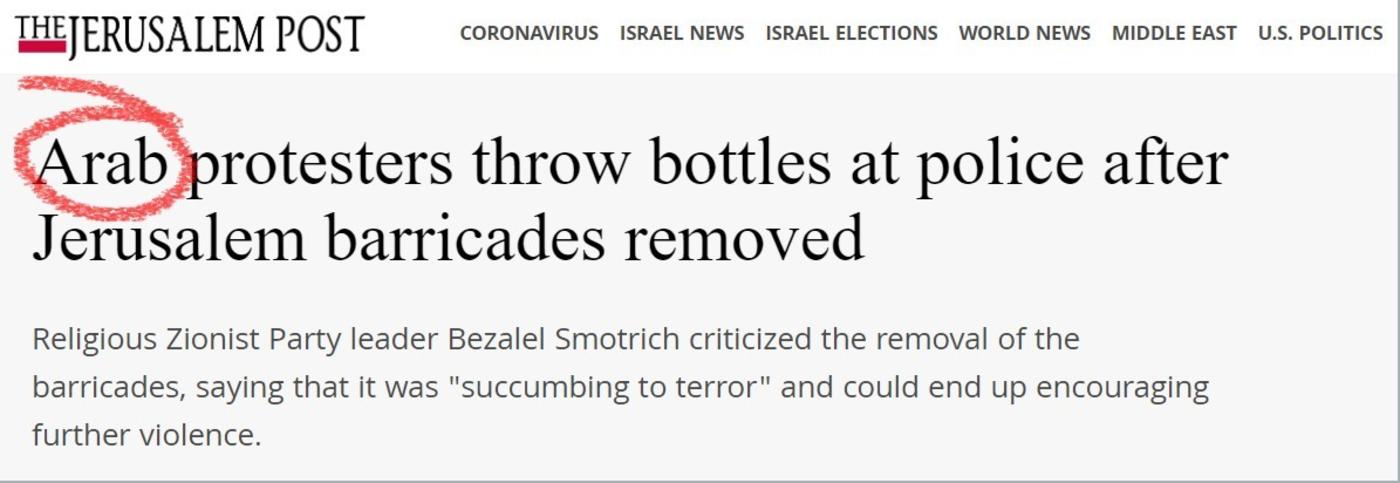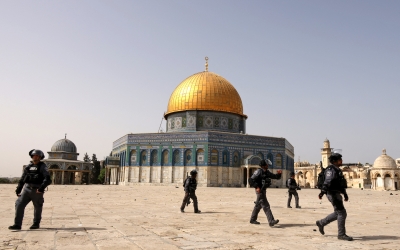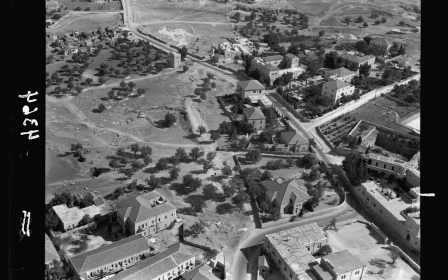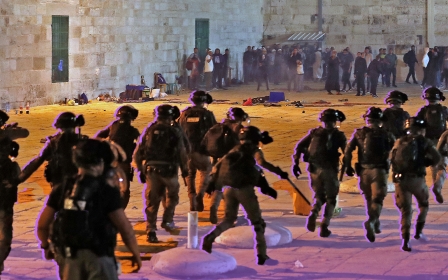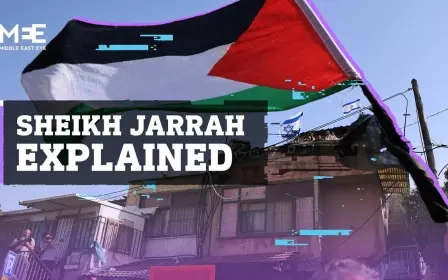Israel-Palestine: A glossary of problematic media language
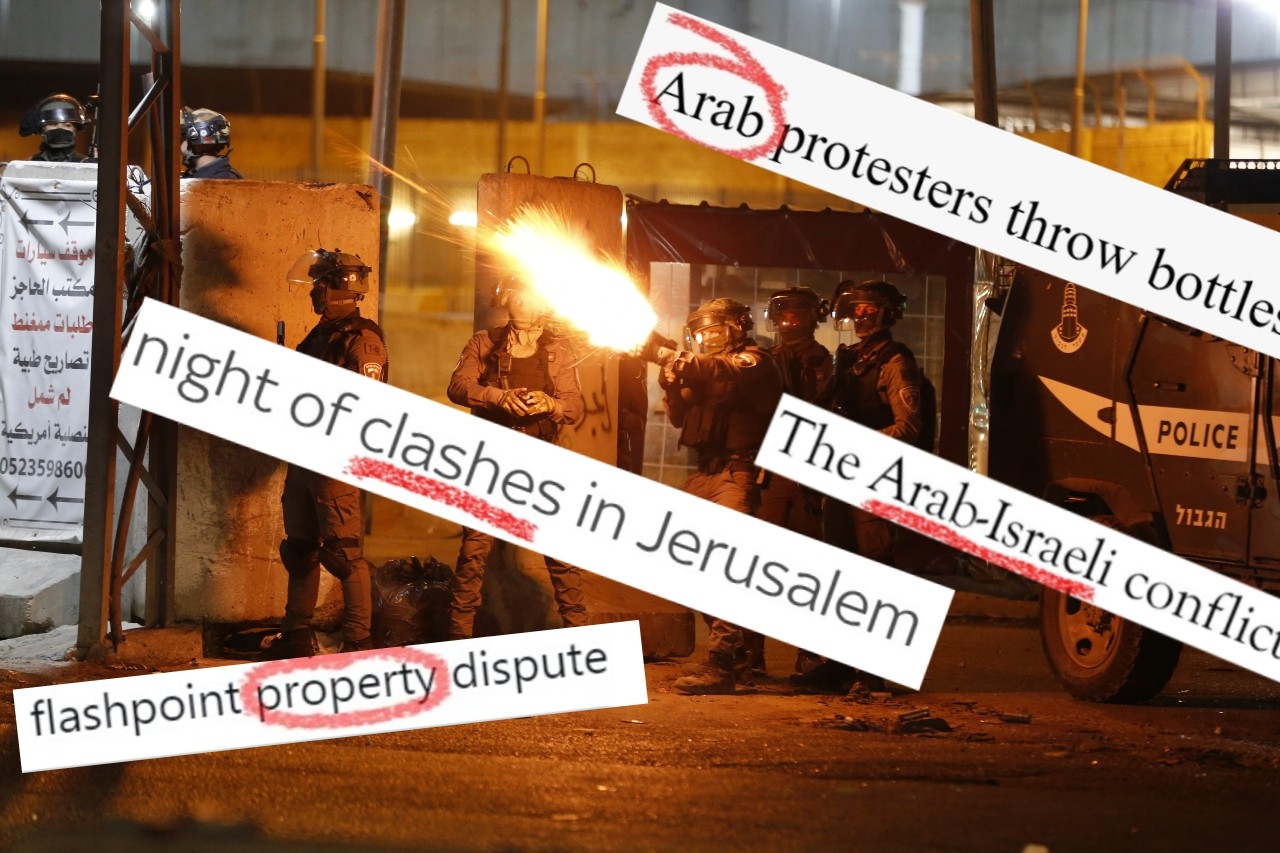
Few topics can stir up powerful emotions more than relations between Israel and Palestine, and the use of language relating to the situation is hotly contested.
Since the latest flare-up in the region, many Palestinian activists have taken to social media to criticise the language used by some media outlets and politicians to frame the events in Israel and the occupied Palestinian territories.
Often, the target of criticism is language that appears to equivocate between unequal sides - particularly the use of terms such as "clashes" or references to "violence" in the passive tense that do not attribute the cause or target of the violence.
At other times, language used by commentators and media outlets can veer into conspiracy-mongering or dehumanising terms.
An image of a newspaper headline from the New York Times being "corrected" by an activist has summed up many of the concerns of some observers. These are some of the terms and concepts which have stoked controversy:
1. 'Clashes'
One of the most frequent terms to appear in media reports about the ongoing violence in Jerusalem - and previous events in Israel-Palestine - has been "clashes".
The implication of the term is a conflict between two parties. The Oxford English Dictionary describes the verb as to "come into violent and noisy collision".
Many pro-Palestinian activists, however, have criticised the term for implying a degree of equality in the use of violence and that both sides are equally to blame.
Although there have been some instances of activists throwing rocks, the Israeli security services are heavily armed and heavily armoured and have been the instigators of virtually all the violence during recent events.
The use of "clashes" in the passive sense also removes agency, allowing blame to, implicitly, be spread evenly among those involved.
Even ignoring that in many cases there was no reciprocal violence from Palestinian activists, the use of "clashes" obscures the nature of the violence taking place and the narrative descends into what has been colloquially referred to as "bothsideisms".
Similar points can be made about other terms such as "unrest" and "riots".
2. 'Conflict'
In a similar sense to "clashes", the use of the term "conflict" can again imply an equivalence of violence between the Palestinians and Israeli security services.
As a whole, the use of the term "conflict" has a troubled legacy in the region - for decades, the situation was referred to as the "Arab-Israeli conflict".
It's a term still popular among right-wing Israelis, implying as it does that the Arab world as a whole is at war with the small Israeli state, obscuring the plight of the Palestinians in the occupied territories and ignoring the relationships that Israel enjoys with many different Arab states.
The "Israel-Palestine conflict", while less obscuring, still implies a degree of equity between the two sides, even if it is also the case that historical violence has been meted out from both parties.
3. 'Property dispute'
A number of politicians and outlets have referred to the controversy in the Sheikh Jarrah neighbourhood as a "property dispute". While in the most literal sense this might be true, it hugely underplays the underlying context, instead implying that what is happening in Sheikh Jarrah is no more significant or morally disreputable than, say, a dispute between a landlord and a tenant in Paris, London or Istanbul.
The planned expulsion of 40 Palestinians from the neighbourhood stems from the fact that the families settled there in 1956, after their expulsion from what is now recognised internationally as Israel. The homes they live in were constructed with the help of the UN Refugee Works Agency (Unrwa) while East Jerusalem was under the control of Jordan.
During the 1960s, the families agreed a deal with the Jordanian government that would make them the owners of the land and houses. The deal was that they would receive official land deeds, signed in their names, after three years. But the deal was scuppered in 1967, when East Jerusalem was captured by Israel. Israeli law favours settlers by allowing only Jews to claim property they say they owned before 1948 - while denying the same right to Palestinians.
So while there is indeed a "dispute" over the property, to discuss it in such terms implies that it is little more than a regular legal issue, rather than a unique situation.
Use of the term "evictions" also has a similar effect, even if, again, it is accurate in the strictest sense.
4. 'Extremist' and 'terrorist'
Both the terms "terrorist" and "extremist" are often used when talking about Israel-Palestine. Israeli media almost exclusively refers to purported acts of violence from Palestinians as being caused by "terrorists". Though the term is perhaps less common in foreign media, it still pops up, particularly among right-wing outlets.
Why the use of the term "terrorist" is controversial in journalism is a much larger issue. Agencies such as Reuters have long avoided using it, saying that it violates the news agency's "value-neutral approach". In the specific context of events in Jerusalem, it normalises a narrative put out by the Israeli security services.
For most of the world, a terrorist is someone who engages in acts of indiscriminate violence against civilians: the actions of the Islamic State (IS) group and al-Qaeda are particularly prominent in the popular imagination.
Such conflation of Palestinian activists protesting - or, at most, hurling rocks - at Israeli security forces, with the likes of the 9/11 attacks or IS massacres serves to delegitimise the Palestinian cause and imply an irrational thirst for bloodshed.
"Extremist" is perhaps an even riskier term, for much of the time what constitutes an "extremist" is undefined. Many political ideologies are considered extreme because they diverge from what is considered mainstream politics - but the term is ultimately subjective.
5. 'Zionism'
Many Jewish commentators have regularly expressed discomfort with the use of the term "Zionism" or "Zionist" when associated with Israeli actions.
The term, which originated during the 19th century, refers to the political movement for the establishment of a Jewish homeland. Different incarnations of Zionism have existed, ranging from left-wing advocates for a bi-national, socialist state in historic Palestine, to far-right religious fundamentalists advocating a state based on the Jewish Halakhic laws that exclude non-Jews from citizenship.
During the past century, however, the term Zionism has also been used by far-right antisemitic groups as part of anti-Jewish conspiracy theories. These have posited that Zionism is not merely a political movement for the colonisation of historic Palestine, but also part of a wider plan for world domination.
A popular neo-Nazi myth refers to the "Zionist Occupation Government" or ZOG, a term used to describe a secret Jewish cabal that allegedly runs most western governments.
A cursory Google of the term "anti-Zionist" illustrates the problem: the results include the website of the Jewish anti-Zionist Network, which is a group of left-wing pro-Palestinian Jews, though the results also include the Anti-Zionist League, which is a Neo-Nazi organisation.
This has led many to feel discomfort at the use of the term "Zionist", particularly in a context which veers into territory implying control of foreign governments, control of the media or finance, or dual loyalty.
6. 'Islam'
The fact that the events in Jerusalem have taken place during Ramadan and have involved worshippers at al-Aqsa Mosque should not obscure the fact that the conflict is not primarily religious. Many Christian Palestinians and secular Palestinians are likewise as invested in the defence of al-Aqsa Mosque and opposing the action against the Sheikh Jarrah residents.
The status of East Jerusalem and al-Aqsa is loaded with religious significance, but it also has huge national resonance for Palestinians of all faiths and political ideologies. The push for the establishment of East Jerusalem as the future capital of a Palestinian state has come as much from secular, Christian and leftist political leaders over the past century as it has from religious Muslims and Islamists.
Some media outlets, as well as foreign supporters and opponents of the Palestinian cause, have attempted to frame the situation in Jerusalem as a conflict between Islam and Judaism, between Muslims and Jews. But this is fundamentally inaccurate, and can contribute to both antisemitic and Islamophobic narratives.
7. 'Arab'
Since the 19th century, theorists, community leaders, politicians and activists have debated the relationship between Palestinian identity and Arab identity. But identity and ethnicity are largely social constructs and are often in a state of flux.
At the height of the Arab nationalist movement from the 1950s to 1970s, many Palestinian political leaders such as Yasser Arafat and George Habash supported the pan-Arabist movement and equated the struggle in Palestine against Israel as part of the wider struggle for Arab unity and independence.
However, in recent decades, as pan-Arabism has receded and the campaign for Palestinian liberation in and of itself has taken prominence in the region, Palestinians in the diaspora, occupied territories and in Israel's internationally recognised borders have identified first and foremost as "Palestinian".
The use of the term "Arab" to describe Palestinians is therefore loaded with connotations. This is nowhere more obvious than with Israeli media, especially right-wing outlets, which regularly refer to all Palestinians living between the River Jordan and the Mediterranean as "Arabs", implying the falseness of Palestinian identity and the temporality of their connection to the land.
It also implies - ironically somewhat mimicking pan-Arabists - that the Palestinians are simply an extension of the wider Arab world and therefore Israel is the victim by virtue of population and a unified stance against them.
Distinction is often made, as well, between Israeli Arabs and Palestinians - that is, those Palestinians who hold Israeli citizenship and those living in the occupied territories. While there are differences in terms of rights and living standards, and while some Palestinians in Israel do proudly boast of their Israeli identity, the majority of Palestinian citizens of Israel identity first and foremost as Palestinian - the largest Palestinian city in Israel, Nazareth, has been erupting in solidarity with the Sheikh Jarrah and al-Aqsa protesters in recent days, for example.
8. 'Temple Mount', 'Haram al-Sharif' and 'al-Aqsa'
As mentioned above, the Israel-Palestine situation is not fundamentally religious. But there is one part of Jerusalem where religion plays a major role - the Old City complex which houses al-Aqsa Mosque, the Dome of the Rock and the Western Wall.
To Jews, the complex is known as the Temple Mount - the location of two ancient Biblical temples and the site where the "divine presence" is strongest on Earth. The Western Wall, at which Jews pray, is said to be one of the last remaining parts of the Second Temple structure.
To Muslims, the complex is known as al-Haram al-Sharif (the Noble Sanctuary) and houses al-Aqsa Mosque - one of the three holiest sites in Islam - which includes the Dome of the Rock and other Islamic shrines.
Many media outlets try to avoid provocation over what to call the area by referring to it by both its names and elaborating on the distinctions. But even here it is possible to misrepresent the nature of the controversy.
Since the capture of East Jerusalem by Israel in 1967, there have been religious Israeli-Jewish campaigners who have called for the construction of the Third Temple on the site - something which they say would herald the coming of the messiah and necessitate the demolition of al-Aqsa Mosque. However, no Israeli leaders have supported this idea publicly, amid fears of a massive backlash from the Muslim world.
In recent decades, though, there have been campaigns by Jewish settler groups for the ban on Jewish prayer on the site to be lifted. The "status quo", as it is called, is an agreement between Israel and the Jordanian-linked religious authority that controls the complex. The agreement allows Jews to visit the site, but not pray there. That position has, to this day, also been supported by the Chief Rabbinate of Jerusalem.
Campaigners calling for Jewish prayer to be allowed on the complex have framed their argument as one of religious equality - if Muslims are allowed to pray, then why not Jews also?
It is easy to portray this as an issue with Muslim chauvinism, denying Jews access to their holiest site. But to do so ignores the context of the Israeli capture of East Jerusalem and the continued colonisation and settlement of Palestinian land - al-Haram al-Sharif, as arguably the most significant symbol of Palestinian sovereignty, is seen as a red line.
In another world, where there might be a state where Israelis and Palestinians lived as fully equal citizens, then the debate could be considered as one of religious rights and theology - but in the current context, material conditions dictate the narrative.
This article is available in French on Middle East Eye French edition.
Middle East Eye propose une couverture et une analyse indépendantes et incomparables du Moyen-Orient, de l’Afrique du Nord et d’autres régions du monde. Pour en savoir plus sur la reprise de ce contenu et les frais qui s’appliquent, veuillez remplir ce formulaire [en anglais]. Pour en savoir plus sur MEE, cliquez ici [en anglais].


